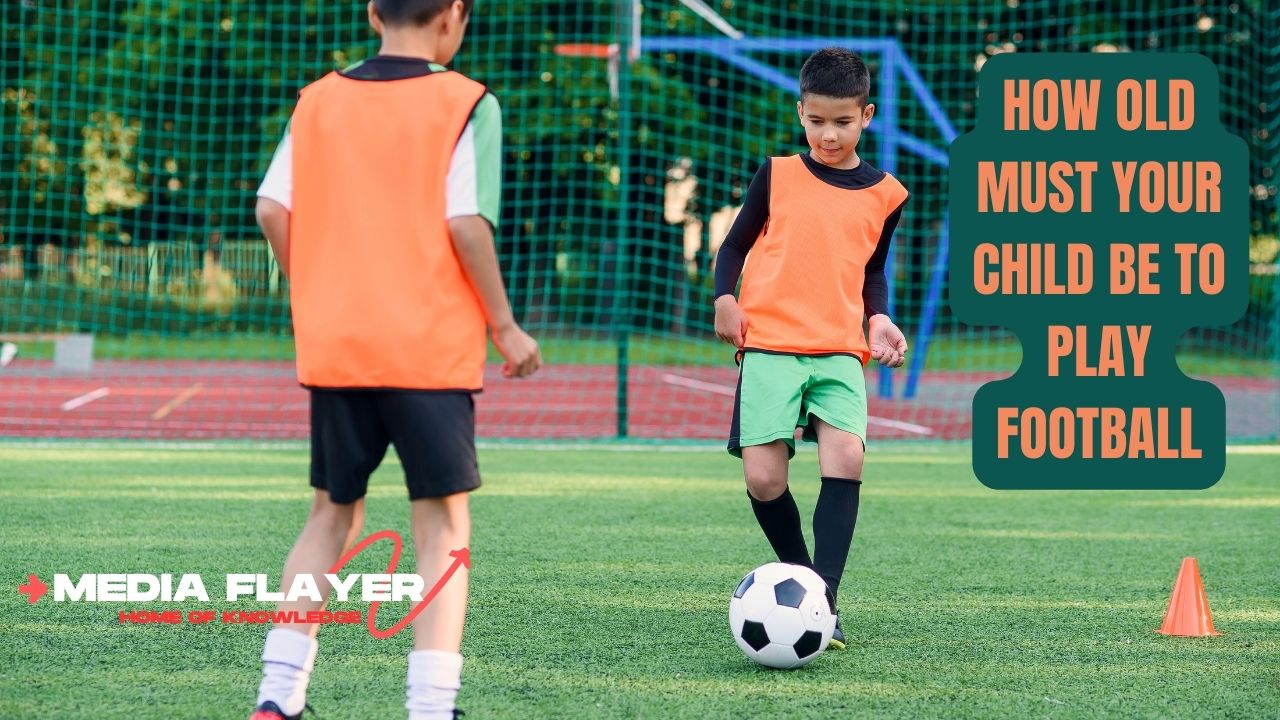If your family likes football, seeing it, most likely video games, and tossing one around the lawn certainly there may come a day when your child asks to register for a team. So, just how old does your child have to be to play football? Due to just how preferred sporting activity is in the United States, it shouldn’t be challenging to find a local youth organization (with their age restrictions provided on their internet site or a phone call away). But as a result of problems around traumas especially their collective effects on the brain over years of play you may decide that while your kid is practically old enough to play, you want them to wait.
Just how old does your child have to be to play football?
Short answer: it depends. First, you’ll need to explore neighborhood leagues and nationwide ones that have teams in your area. Pop Warner is perhaps one of the most well-known names in young people’s football leagues, and they sign up youngsters as young as age 5. You most likely won’t locate numerous (or any kind of) take-on football organizations that take kids more youthful than that.
If you’re not exactly sure where to start and a Google search doesn’t lead you anywhere, contact your regional YMCA and Boys & Girls Club to see if they have teams or camps.
In the future, the state you reside in might influence the age at which you can register your youngster in football. California lawmaker Kevin McCarty presented brand-new legislation that, if adopted, will call for youngsters in the state to be at the very least 12 years old to play take on football to “safeguard young professional athletes from undergoing brain injury and injury,” according to a press release on McCarty’s website. This limit would certainly take effect in January of 2026.
While there’s nothing else regulation around age limits in young people’s football today, it’s something that might come up for parents in the future. Trauma prevention campaigning for teams, like the Concussion Tradition Structure, is functioning to remove head influences of any kind, like tackling and headers in soccer, from youngsters’ sporting activities till the age of 14. However other authorities on the issue like the National Alliance for Youth Sports, The American Academy of Pediatric Medicine (AAP), the Centers for Condition Control and Avoidance (CDC), and United States Football haven’t yet presented any type of age limits or recommendations.
What’s the very best age to start football?
This inquiry is fiercely debated, and the answer for your youngster will come down to your very own assessment of the threats and advantages of playing this sport. The huge things most moms, dads, and medical professionals bother with are concussions and the risk of persistent traumatic encephalopathy, or CTE. CTE is a degenerative brain disease caused by repeated trauma to the mind, according to the Concussion Tradition Structure, and can create a wide array of signs and symptoms: aggressiveness, stress and anxiety, impaired judgment, and more.
So, when do kids’ health professionals think they should begin football to minimize the threat of head injuries?
“There is currently no consensus on when to begin dealing with football,” claims Dr. Naomi Brown, M.D., FAAP, CAQSM, pediatric sporting activities medication professional at Children’s Health Center of Philly. “Freshman year of secondary school is a practical time to make this change, however, this decision may be made on a private basis, taking into consideration physical features, maturation condition, and need for involvement in getting in touch with sports.”
Benefits of playing football
However what about all the developmentally healthy and balanced facets of playing a group sport? They are emotional and tough, Brown mentions, and can teach children about interaction, being a leader, and functioning as a team, on top of boosting their electric motor abilities and stamina.
If you have an interest in enrolling your youngster in football sans taking on, while still getting the benefits of playing the game, flag football might be best for your family members. “Kids can start throwing a football and joining different non-contact sports as very early as age 4. Football can be a fantastic way to instruct kids on standard electric motor abilities like running, catching, and throwing, in addition to hand-eye control and teamwork.
A lot of the basic abilities for football can be established in flag football,” says Brown. For the best course right into playing football, Brown says moms and dads can stick to flag football until soon before high school, then find a program that educates customized dealing with, providing children a possibility to learn the appropriate dealing with methods to decrease injury before heading right into secondary school.
What should moms and dads search for in a football program?
When you’re scouting out a potential group for your youngster, the AAP recommends:
- Checking out the playing field. Is it level and free from debris? Are the goal messages cushioned?
- Existing very easy accessibility to alcohol consumption water in any way?
- Gauging your youngster’s tools (like their pads and safety helmet) to guarantee the safest possible fit.
Do not hesitate to ask the coach a great deal of inquiries too. Injuries usually happen when gamers run out of placement, are confused about their projects, or play beyond the guidelines,” states Brown.
For younger youngsters, choosing a team that restricts contact in practices may decrease the threat of traumas and impact-related injuries, according to an AAP 2015 declaration on tackling in young people’s football. There is likewise some evidence suggesting that groups with sports trainers existing at methods and games have fewer sports-related injuries generally, the statement states, so preferably your child’s team would have one also.
You should additionally make sure that your youngster’s possible instructor has had concussion training, and does not enable professional athletes to remain to play after a head injury. Brown suggests the Facility for Disease Control and Avoidances direct to Young People Sports online training, which is readily available on the CDC internet site for free.
Simply put, your child can start playing tackle football around the age of 5, depending on the age limitations of your regional organizations. When you wish to sign your youngster up, nonetheless, is a personal choice for each family, Brown states.
” As a family, you are required to decide whether the risks of football exceed the advantages. Speaking with trusted specialists, such as your doctor or a sports medication specialist, may be valuable to you in browsing this subject as a common choice.”



